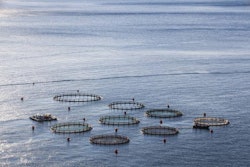Funding to build flagship that will enable ranches
American insect entrepreneurs Beta Hatch, creators of a sustainable insect production platform, announce the close of their oversubscribed $9.3M Series A funding. Co-led by Cavallo Ventures, the venture capital arm of Wilbur-Ellis, and rural venture firm Innova Memphis, the round also included investments from Brighton Jones Investment Partners, AccelR8, and SeaAhead. The new funding will be used to complete construction of Beta Hatch’s flagship facility, which will be its first hatchery in a hub-and-spoke operating model, and the largest mealworm production facility in North America.
“We are excited about the opportunity in front of Beta Hatch and look forward to delivering product out of the flagship facility by mid-2021. There continues to be growing interest in insect protein across many end-markets as shown by customer commitments to date, and we see that demand continuing to expand.” said Son Vo, Managing Director at Cavallo Ventures.
Beta Hatch’s insect-rearing platform converts low value organic waste into high-value proteins and oils to feed aquaculture, pets, and other animals. The insect manure, called frass, is a valuable organic fertilizer, making Beta Hatch farming a zero-waste, circular system. “Adding to the sustainability of our model, all of the power for the flagship operation is derived from renewable sources,” says Virginia Emery, Beta Hatch founder and CEO. “We also use waste heat from a neighboring data center to lower electrical requirements of the air handling systems. We believe co-locating with waste sources of all types makes for not just more sustainable production, but also lower costs and shorter transportation distances.”
“One of the things I love most about Beta Hatch is the reinforcing loops around this approach, which is to use food waste, to use waste heat, and to re-create jobs in rural areas,” says Dwight Poler, CEO of climate change mitigation fund AccelR8. The new flagship facility, located in Cashmere, WA, is scheduled to be operational in mid-2021. Located in an old juice factory, the Beta Hatch flagship will eventually transition to operation as a hatchery, producing eggs to support dozens more insect ranches across the continent.
“The rural location of the facility, its strategic location to capture and use waste heat, as well as the ability to source feedstock within a few miles enables attractive operational cost,” says Dean Didato, Partner at Innova-Memphis. “In addition, the Cashmere facility, which will be the largest mealworm facility in North America, will add opportunities for local employment in a highly technical production environment.”
Demand for insect protein is soaring. The animal feed industry is in search of alternative proteins and oils to meet the million-ton gap between current supply and forecasted demand.
Right now, the real need is for more capacity. Rajiv Singh, board member at SeaAhead and the founder of Amritam Holdings, both entities joining this investment round, says: “We see tremendous opportunities for protein-rich ingredients from plants, insects and fungi in the food and feed supply chain, especially in the sustainable seafood and aquaculture sector. Beta Hatch has one of the most pragmatic, decentralized, scalable, and low risk models of the insect-based protein solutions.”
Beta Hatch’s technology makes it possible for insects to answer the world’s rapidly growing demand for protein through natural and sustainable means. Their first insect is Tenebrio molitor, also known as the yellow mealworm, chosen for its ability to grow readily at scale with minimal labor. Unlike some large competitors, Beta Hatch focuses on a smaller and more distributed scale of operation, in a hub-and-spoke operating model where hatchery facilities (hubs) produce eggs and ranching facilities (spokes) grow product. “The supply chain system is being reshaped by the COVID-19 pandemic.” says Louis Kang, Managing Director of AccelR8. “We’ve seen that the centralized system and existing modalities are not resistant to disruption.”
Additional production facilities in the Beta Hatch network are planned for late 2021 – 2022.
Beta Hatch CEO Virginia Emery, center, held a ceremonial groundbreaking in September with officials from the city of Cashmere, U.S. Rep. Kim Schrier, and Malachi Salcido, whose next-door cryptocurrency mine will provide heat for the operation. The facility will raise mealworms, a type of beetle larva, for use in animal feed.









